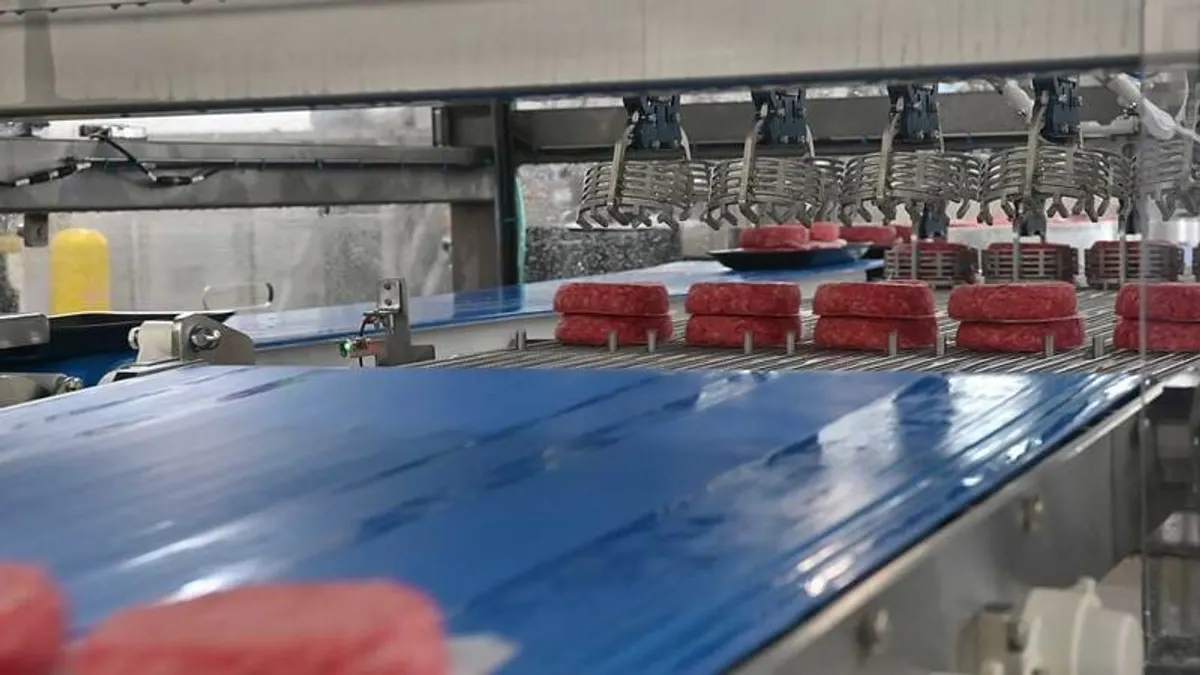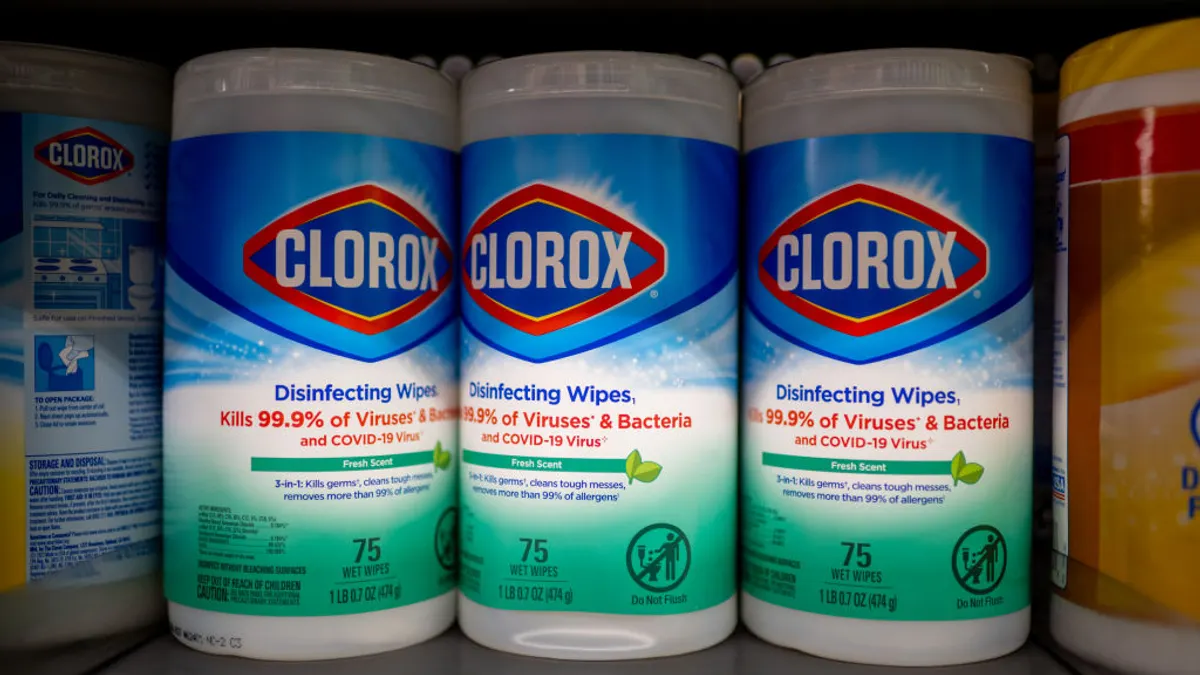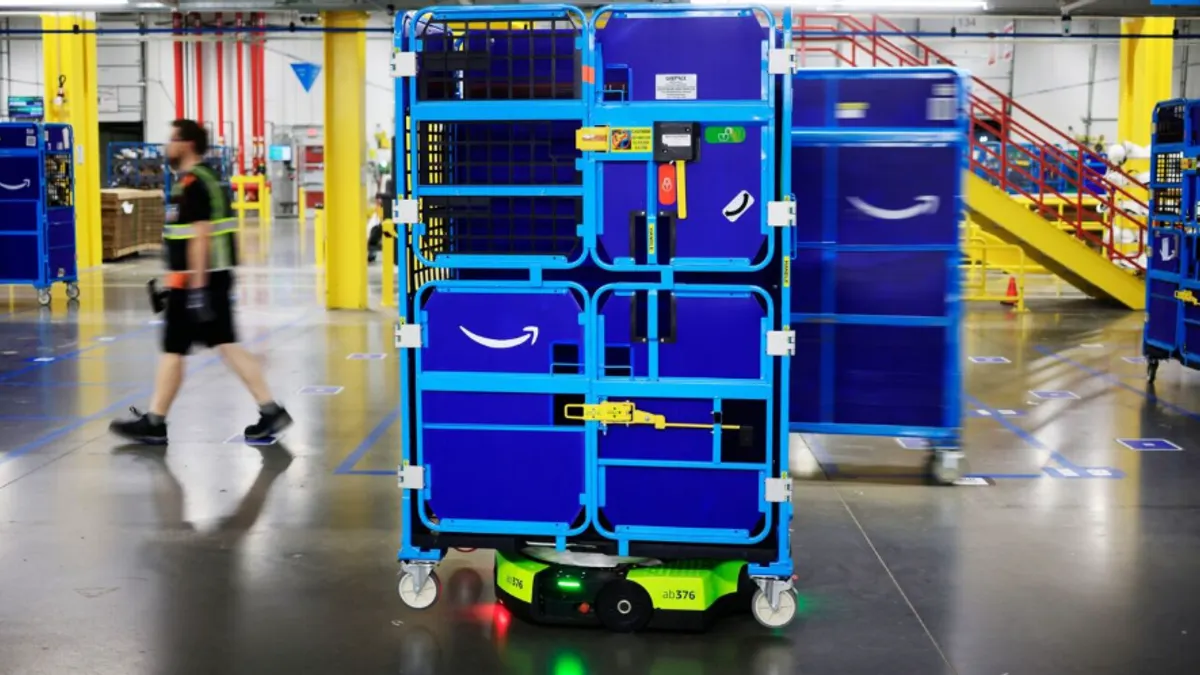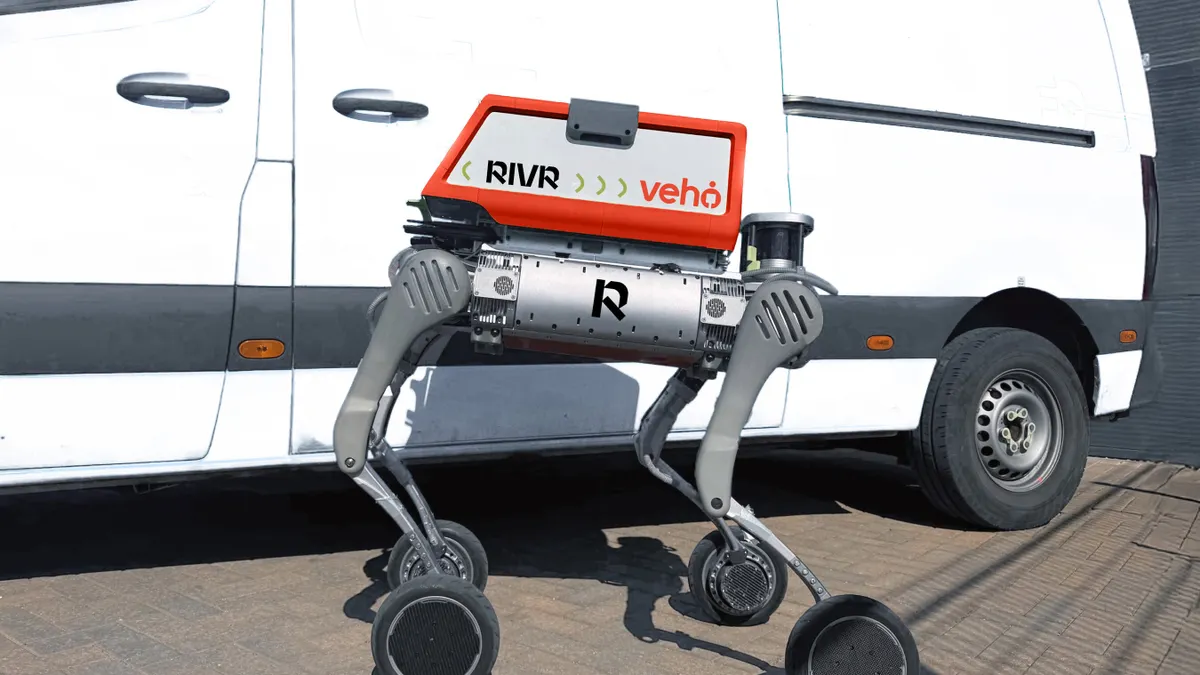Editor's Note: The following is a weekly column covering technology and regulation within the supply chain and logistics industries.
Automakers launch a cooperative data sharing platform
Nine automakers are partnering to boost visibility through a data-sharing platform.
Fiat Chrysler Automobiles, General Motors, Honda North America, Nissan North America, Toyota North America, Adient, Denso North America, MAHLE North America and Yanfeng Automotive Interiors all joined together to share supply chain data on a platform run by Surgere, according to a press release provided to Supply Chain Dive.
Because so many original equipment manufacturers (OEMs) share suppliers and supply chain partners, the platform intends to help OEMs learn from each other about how to manage inventory and make logistics more efficient.
"It's estimated that the automotive industry annually loses more than $2 billion in the supply chain through container, part, and finished vehicle inventory loss and logistics inefficiencies, through a notorious lack of visibility and inherent control," said Surgere CEO William Wappler, according to the press release.
The Reaction: This new data platform is effectively doing what blockchain enthusiasts hope blockchain will do: provide a safe and secure method of sharing data between industry players so as to improve operational and logistics efficiency.
But there's a catch: while there's a tremendous opportunity to collaborate, it is unclear from the press release whether OEMs will be incentivized to share as much data as necessary to bring about real change in auto supply chains.
Only time will tell.
Treasury Department may restrict Chinese investment in the U.S.
Following the passage of the defense policy bill including the ZTE ban, the Treasury Department may restrict some Chinese investment in the U.S. on grounds of national security, according to Reuters.
The undisclosed investments are being investigated under the Trump administration's Section 301 intellectual property (IP) remedies, according to the report.
The Reaction: The U.S. crackdown on Chinese imports and investments could have severe consequences for many global supply chains, but it's still unclear just how bad it will be.
While this latest move against China may further incentivize U.S. companies to invest in U.S. suppliers and supply chain partners, such shifts may be costly, and the impact is likely to be more drastic for smaller companies and those who single-source.
The Trump administration is already granting some exclusions to the steel tariffs, so some companies may have less to fear.
Industry groups urge Congress to address truck driver shortage
Forty-two trade associations wrote a letter to Congress asking them to move the DRIVE-Safe Act "through [the House Committee on Transportation and Infrastructure] quickly," which would allow drivers under the age of 21 to cross state lines as commercial truck drivers.
According to the letter, because 18-year-olds can obtain a commercial driver's license, it doesn't make sense for them to wait until they're 21 to cross state lines as trucking is an interstate industry.
The trade associations who signed the letter — which includes the American Trucking Associations (ATA) and various retail, manufacturing and distributor associations — believe that allowing 18 to 21-year-olds to enter the interstate trucking industry could help mitigate the severe driver shortage and high turnover rate.
On the other hand, the Owner-Operator Independent Drivers Association (OOIDA) thinks the DRIVE-Safe Act is reckless and irresponsible, calling the perceived truck driver shortage a "myth" in a press release.
The Reaction: Allowing 18 to 21-year-olds to participate as full members of the trucking industry could mitigate the driver shortage, but only if large numbers of them sign up to become truck drivers. But if those young drivers pursue college degrees, then they might not keep up with trucking work for long, which means the truck driver turnover rate could remain the same.
In the long run, if younger individuals try out truck driving and like it, the trucking industry might be more likely to hang onto those drivers, which could have a positive effect on the turnover rate.
In case you missed it
This morning the European Union slapped 25% tariffs on a variety of American products — including motorcycles, steel, jeans and bourbon — that the EU said would go into effect immediately, USA Today reported. Earlier this week, India raised tariffs against the U.S.
The Trucking Alliance is opposing a bill in Congress that would change hours of service (HOS) rules for livestock haulers to allow them to be exempt from federally mandated breaks and drive up to 18 consecutive hours in a 24 hour period. According to the alliance, this hurts the interstate trucking industry by not enforcing federal standards.
At the same time, the ATA announced support for the newly-introduced HOURS Act, which would allow "flexibility" with HOS rules for truckers using ELDs. (The text of the bill is not yet available.)
The CEO of Audi was arrested in relation to Volkswagen's auto emissions cheating case, FreightWaves reported.
The U.S. Equal Employment Opportunity Commission (EEOC) filed a lawsuit against trucking company Prime over a sexual harrassment complaint from a female truck driver.
In other news, several members of Congress are asking Attorney General Jeff Sessions to "examine the issue of possible irregularities in the aluminum market which appear to have inappropriately inflated the price of aluminum and whether these irregularities raise antitrust concerns."
Looking ahead
The Port of Antwerp is launching a blockchain pilot with Belgian fruit-forwarding company Belfruco and blockchain developer 1-Stop. Ryder and UPS are adding more electric vehicles (EVs) to their commercial truck rental fleets, FreightWaves reported.
Meanwhile, Sweden is already installing the necessary infrastructure for EVs to run smoothly.





















